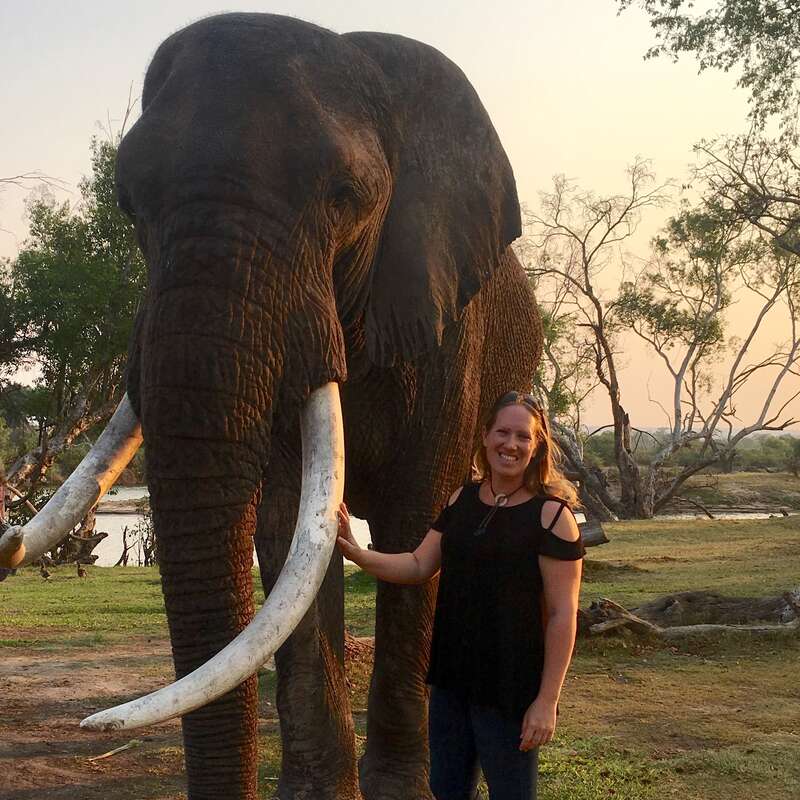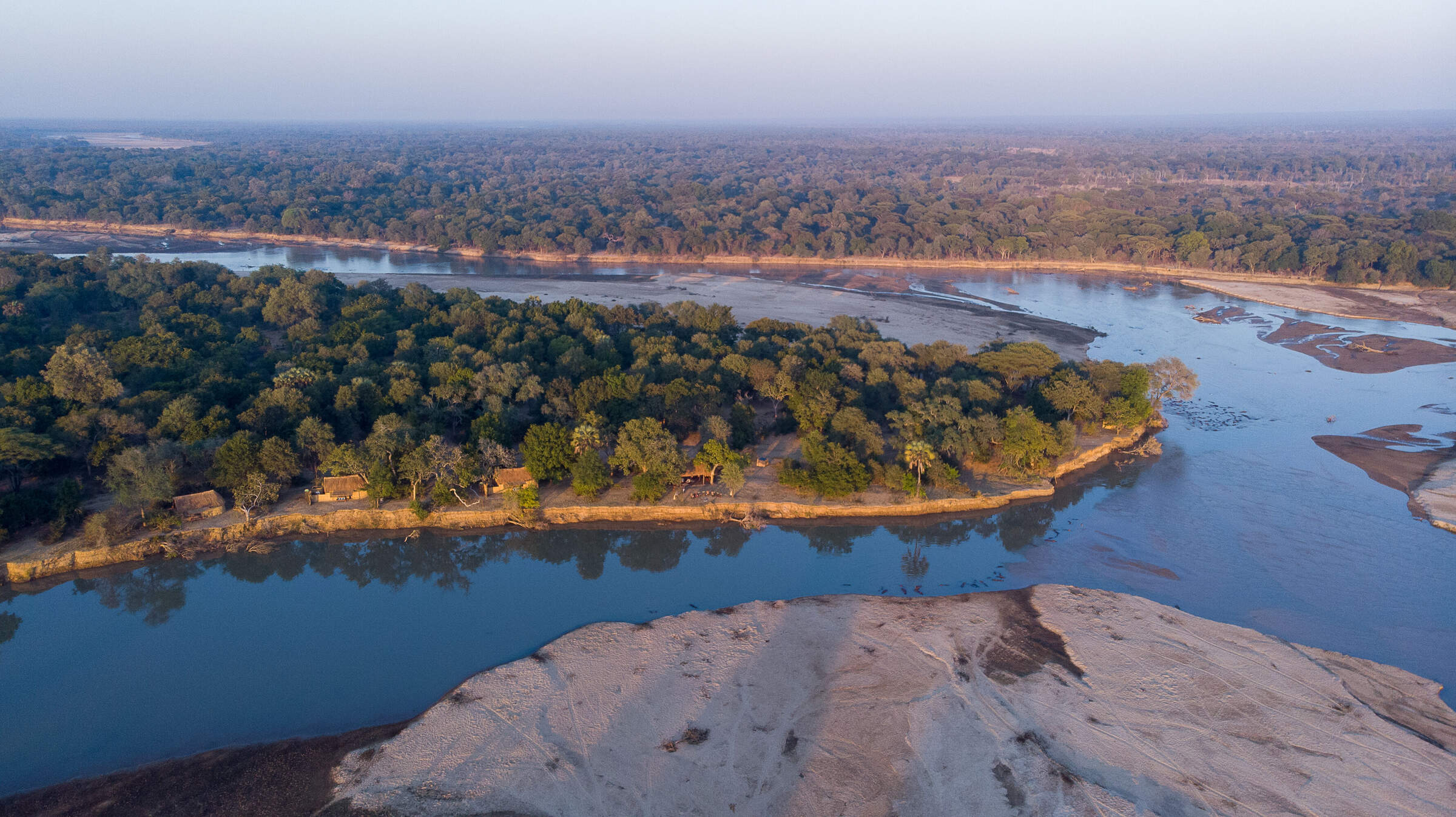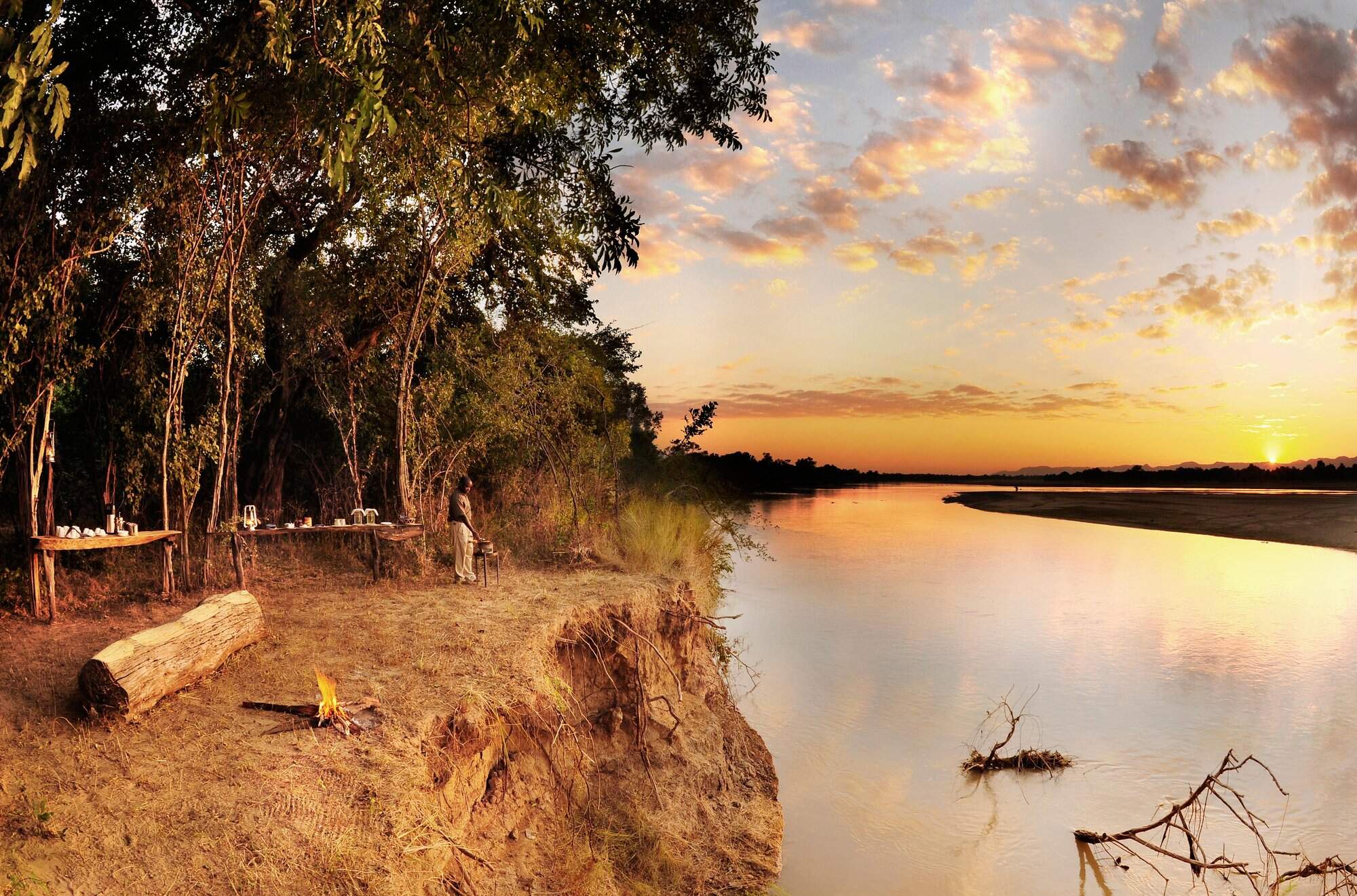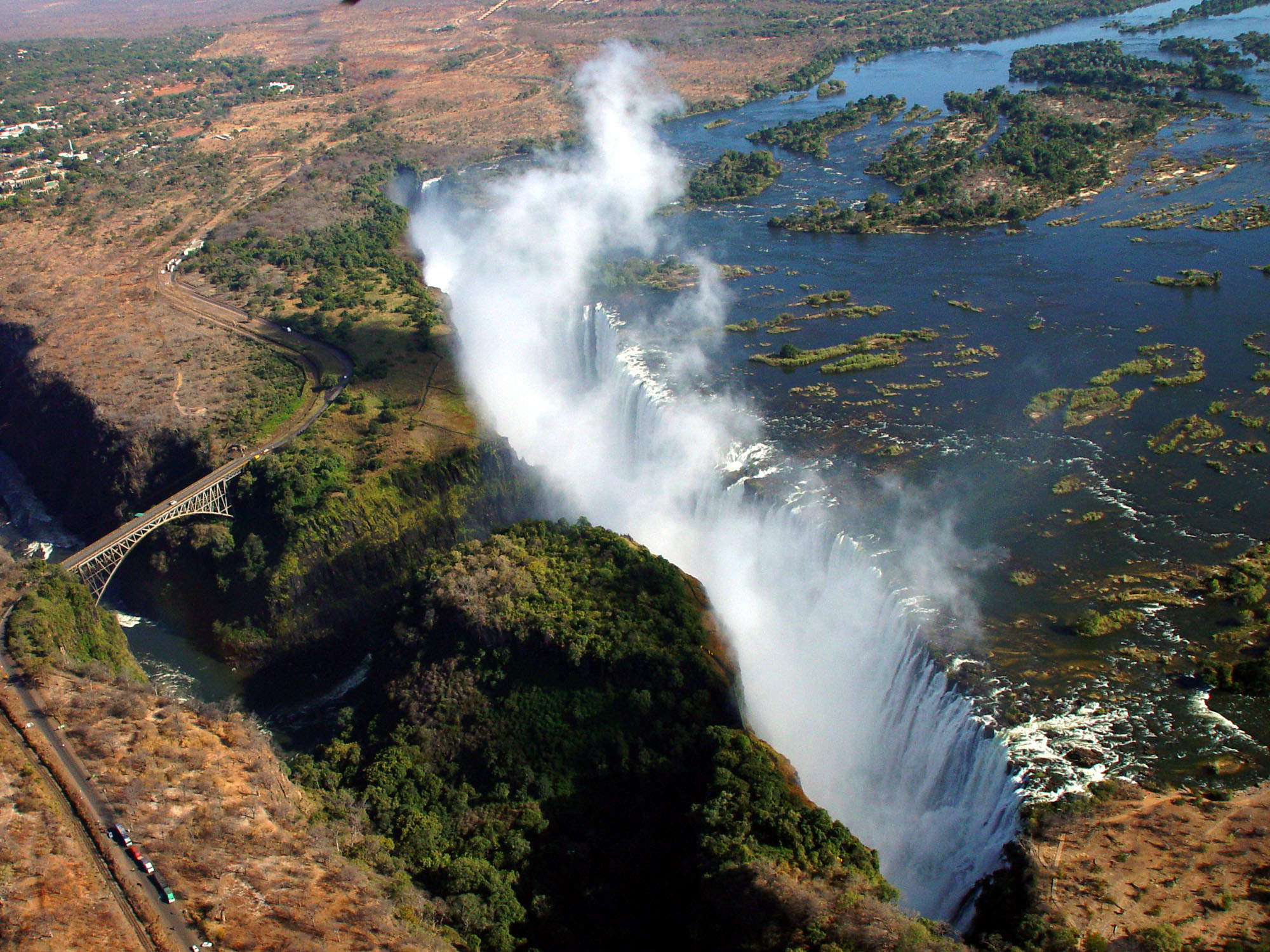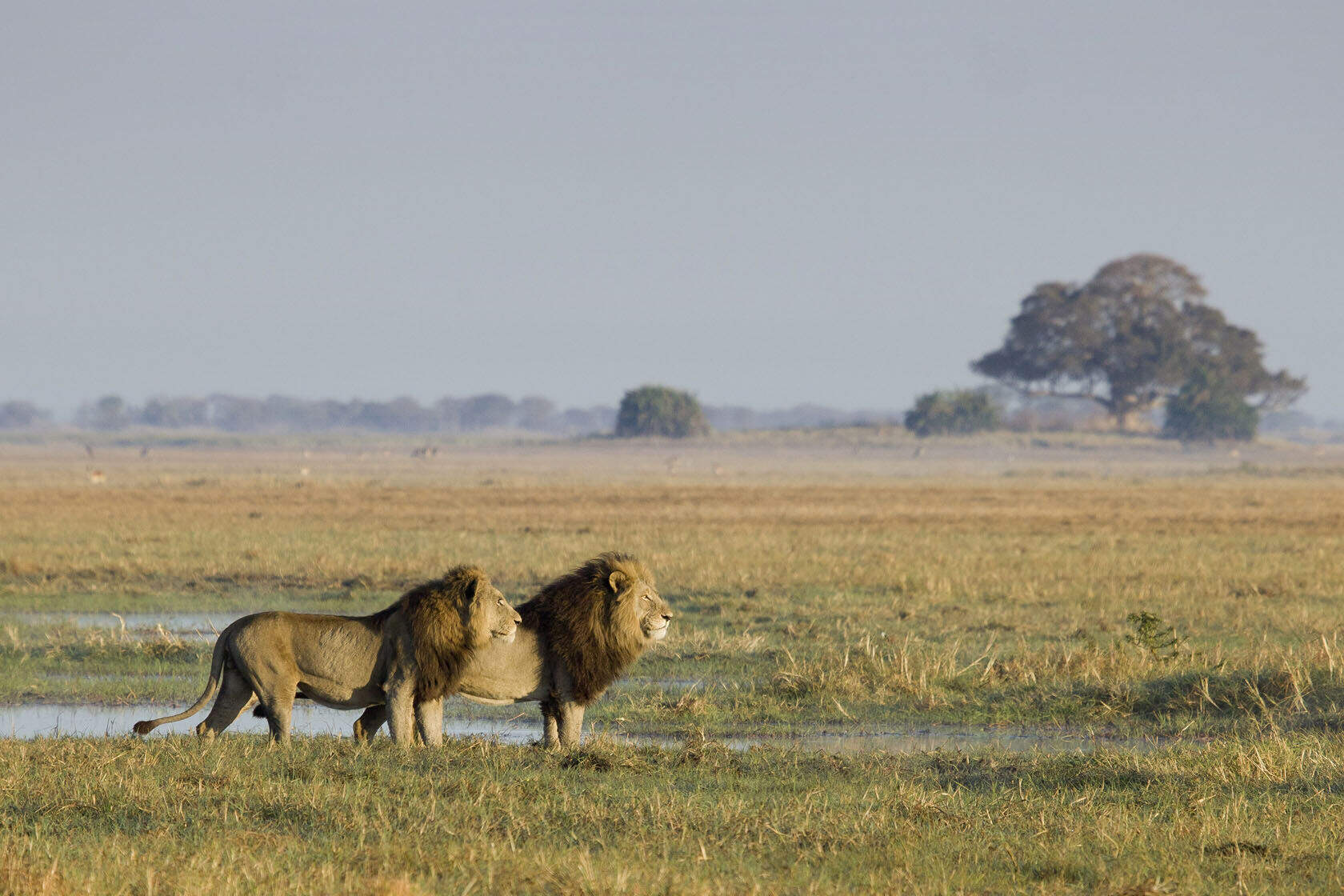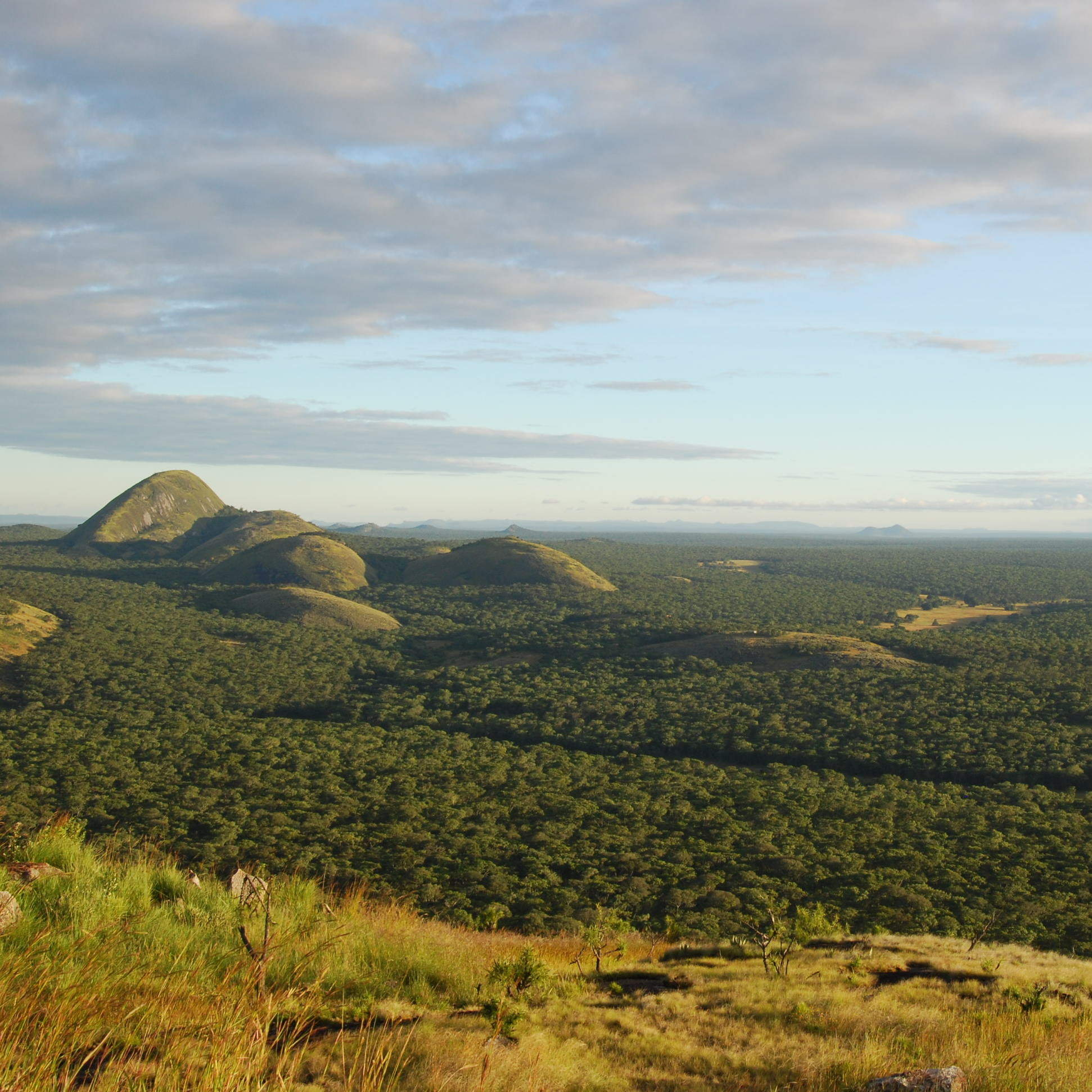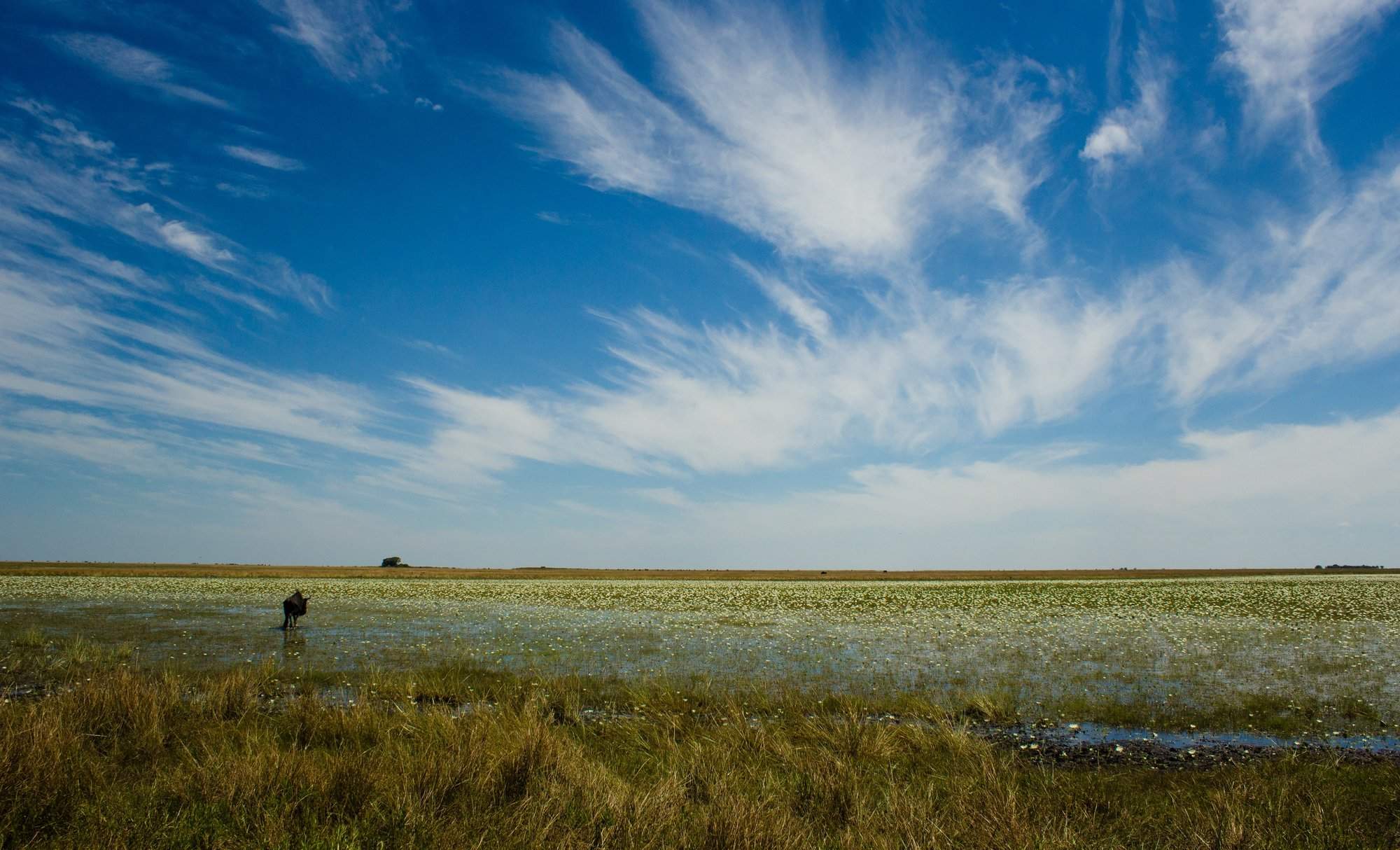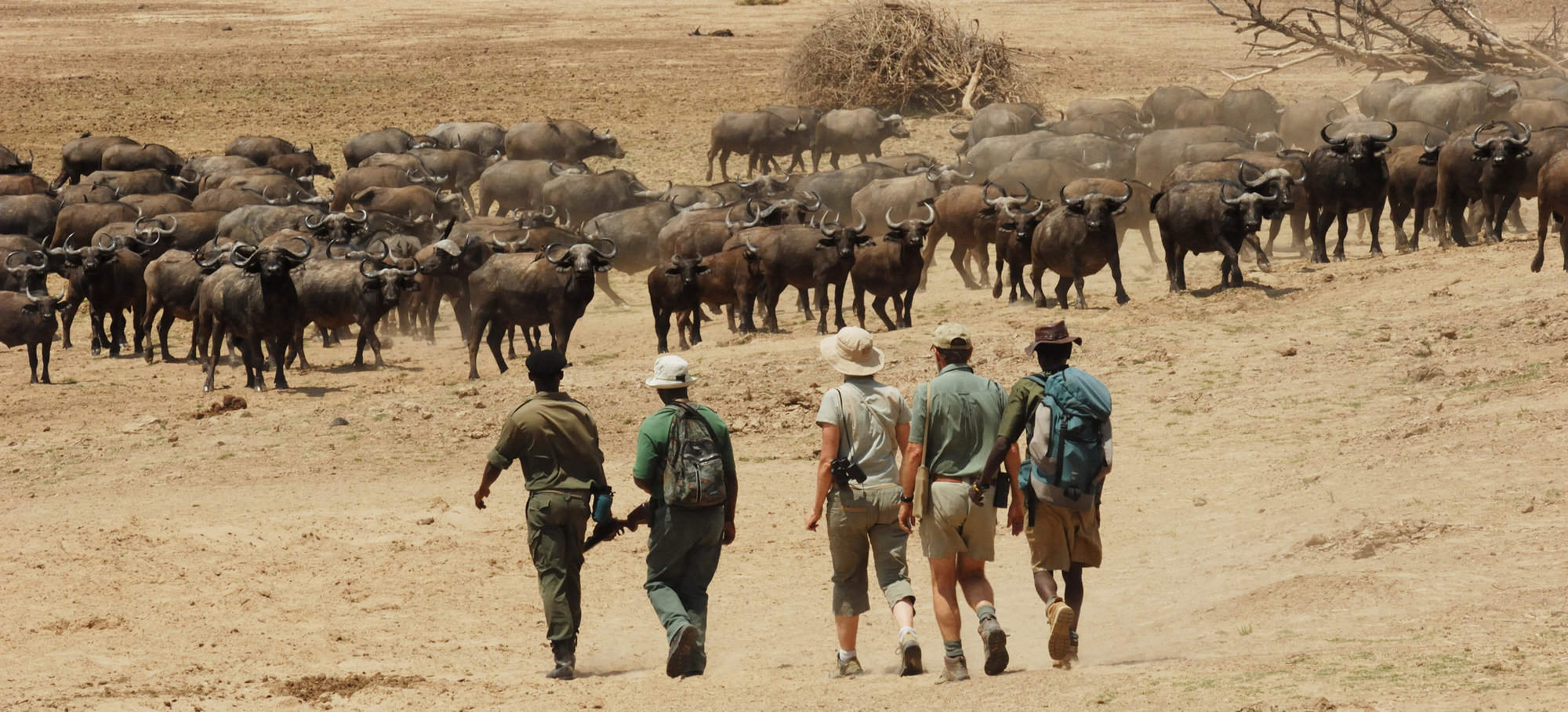Mwaleshi Camp: Our full report
Set in a seriously remote part of Zambia’s North Luangwa National Park, the seasonal Mwaleshi Camp stands ...
... beside the crystal-clear Mwaleshi River, 10km from its confluence with the Luangwa. It’s a small, rustic and unpretentious walking camp in a remote and peaceful wilderness area.Mwaleshi Camp opens only in the dry season, between June and October, and is constructed afresh each year from reed and thatch. Facing the river are just four light and airy chalets, with “windows" to the front (expect open spaces rather than glass!), and open eaves too, letting a cool breeze through.
The chalets are furnished simply, but very comfortably. Canvas directors' chairs sit by the windows – and one of the chalets boasts a hammock under the trees. Twin or double beds with stone headboards and walk-in mosquito nets face the window too, and on the bedside tables are mosquito spray and a flask of drinking water. A solar light hangs next to each bed, with a small solar lamp to take with you to dinner as a torch if necessary. There’s hanging space (with a couple of kikois for you to use during your stay) and two large shelves cater for even the sturdiest luggage.
The en-suite bathrooms are largely open air, albeit mostly shaded by trees, their soft sand floors covered with rattan mats. A separate flush toilet is the only part of the bathroom to have a “roof'” Each morning, a jug of hot water is passed through a “hatch” behind the basin, while hot water for the shower is supplied on request.
Set up on the riverbank, Mwaleshi's main area is understated: a thatched open-sided “chitenje” that overlooks the river. Pull up a bar stool to the polished wooden bar, relax with a wildlife book or magazine in a comfortable armchair or sofa covered in local fabrics, or perhaps in one of the directors’ chairs outside.
Steps cut into the riverbank lead to a firepit right by the river’s edge, where two well-placed sunloungers under a thatched shelter are lapped by the shallow water. The river is usually shallow enough (often just a few inches deep!) to be a safe and very refreshing place to cool off. But lions roaring close by leave no doubt that this really is the wild African bush.
Mwaleshi focuses solely on walking safaris; the camp doesn't offer game drives, although a vehicle is often used to drive guests to more remote walking areas. Walks from the camp normally last about three–four hours, and are fairly relaxed – so only a modest level of fitness is required.
The aim is to track and see some of the area's great wildlife, not to provide an endurance test or route march. There's usually a stop for refreshments, such as mid-morning tea, cake and, refreshingly, fresh fruit. The terrain in North Luangwa National Park is fairly flat but is occasionally uneven underfoot – so do bring sturdy shoes. At hat should be key on your packing list, as it can get extremely hot in the park, especially in the later months of the season. On our last visit, in October 2018, we were met on our return to camp with cold flannels and cool drinks made with rehydration salts, both refreshing, and necessary, given the heat.
The wildlife around Mwaleshi is abundant, with a particularly good population of lion and buffalo – as well as large herds of the endemic Cookson's wildebeest, which are rare in the more oft-visited South Luangwa National Park. On our last visit we had the most fantastic walk tracking three male lions, newcomers to the area that were threatening the resident coalitions.
Mwaleshi is run by the team of top-notch guides from Remote Africa Safaris’ led by John Coppinger, they are some of the most experienced walking guides in Africa. Typically, one of the guides comes to the North Luangwa with a small team of staff to build the camp in mid-May, and then stays for much of the season – occasionally swapping with one of Tafika's permanent guides. Our guide was exceptionally knowledgeable, peppering our walks with fascinating stories and explanations. All walks are also accompanied by an armed scout, whose presence came into its own when we chanced upon an injured hippo that was resting in a thicket. The situation was swiftly dealt with by him and our guide, who turned the group around efficiently and safely out of potential harm’s way.
Mwaleshi’s lies near the area where black rhino have been re-introduced during the past few years. The project is protected by a certain amount of secrecy, to aid anti-poaching efforts, but the camp estimates that there is now a healthy population of rhino in the park. That said, don’t come here expecting to see them; the team at Mwaleshi only spotted rhino a couple of times in the 2018 season. The interest here is the conservation story behind the relocation, and the incredible efforts by the team involved to reintroduce these endangered animals into the park.
Mwaleshi combines very naturally into a longer trip including its sister camps in the South Luangwa National Park: Big Lagoon Camp, Chikoko Tree Camp and the base for the group, Tafika. Big Lagoon Camp and Chikoko Tree Camp are small walking camps, very much like Mwaleshi, whereas Tafika also offers 4WD safaris and night drives. Keen walkers will often arrange for a week in South Luangwa, walking between the three camps there, followed by three–five nights at Mwaleshi to experience the “North Park”.
Remote Africa Safaris are also opening a new camp in the North Luangwa in July 2019, Takwela, which will offer both walks and game drives. We expect this to combine very well with Mwaleshi, with guests able to experience a mix of activities in this northern area.
Our view
Mwaleshi Camp is one of the most remote camps in Africa. The ultimate wilderness retreat, it’s exactly how a true bushcamp should be: small, intimate and very individual. The guides here are among the best safari guides we have encountered, which guarantees the exceedingly high level of knowledge and experience that draws many of our travellers back on a regular basis.
Geographics
- Location
- North Luangwa National Park, Zambia
- Ideal length of stay
- We’d recommend between three and five nights at Mwaleshi. The camp is probably best combined with one or more of its sister camps: Takwela in the North Luangwa (opened in July 2019) or, in the South Luangwa National Park, Big Lagoon Camp, Chikoko Tree Camp and Tafika. As the most remote of these very isolated camps, Mwaleshi is often visited last.
- Directions
- Mwaleshi is either a 40-minute flight from Mfuwe Airport or 30 minutes from Lukuzi Airstrip (for Tafika). You’re then just a 15-minute drive from the airstrip to camp.
- Accessible by
- Fly-and-Transfer
Food & drink
- Usual board basis
- Full Board & Activities
- Food quality
- Meals at Mwaleshi are served either in the main “chitenje” or on the banks of the Mwaleshi River. The food on our last visit in October 2018, as on previous occasions, was consistently delicious and very well presented. With sufficient notice, the camp can cater to a range of dietary requests.
The morning usually starts with a light breakfast around the campfire before your first walk of the day, followed by brunch on return to camp. After a relaxing siesta, tea and freshly baked cake are enjoyed before the evening walk, and then a full three-course dinner is served at around 7.30pm.
Our breakfast was a selection of cereals and fresh papaya, as well as eggs and sausage, with tea and coffee to drink. Toast was grilled over the campfire.
Our buffet brunch included Mexican chicken stuffed tortillas, a green salad and rice fritters, served with freshly baked bread and finished off with fresh fruit or banoffee pie.
Dinner is a slightly more formal occasion. Our first night we enjoyed aubergine, tomato & cheese parcels to start, followed by pork stir-fry with rice and grilled vegetables, then a delicious apple crumble for dessert. The second night of our stay, the dining table was moved down next to the river, under the stars. To start we had apple soup, served with freshly baked rolls, then a main course of delicious roast beef, roast potatoes, roasted carrot and beetroot, and a green salad. Chocolate mousse followed, and there’s always tea, coffee or drinks available to round off your meal. - Dining style
- Group Meals
- Dining locations
- Indoor and Outdoor Dining
- Further dining info, including room service
- No
- Drinks included
- Water is brought from the river, boiled and then filtered twice – it is safe to drink, though the camp has bottled water if guests wish.
Soft drinks, house wine and local spirits are included in the rates, but fine wines, champagne and imported spirits and liqueurs must be requested in advance, and will be charged as extras.
Special interests
- Solo Travel
- Set in beautiful surroundings, in the remote North Luangwa, Mwaleshi Camp focuses purely on walking safaris; it’s one of Africa’s top walking camps with very high guiding standards! It is a great choice for a solo traveller holiday and charges only a low single supplement.
- See ideas for Solo Travel in Zambia
- Birdwatching
- The guides at Mwaleshi are consistently top-notch for birdwatching. Most flora and fauna are common to the whole Luangwa Valley, but specials include the white-winged starling, the chestnut-mantled sparrow weaver and the yellow-throated longclaw.
- See ideas for Birdwatching in Zambia
- Walking safaris
- Mwaleshi is one of Africa's top walking camps, dedicated to walking safaris, and run by Remote Africa Safaris, one of the Luangwa Valley's most experienced safari companies. Walks from Mwaleshi usually involve cooling paddles across the shallow Mwaleshi River. Bliss!
- See ideas for Walking safaris in Zambia
Children
- Attitude towards children
- Sensible children aged 12 and over are welcome at Mwaleshi.
- Property’s age restrictions
- Minimum age 12 years
- Special activities & services
- None
- Equipment
- None
- Generally recommended for children
- We endorse Mwaleshi’s restriction to children above the age of 12, and recommend it only for mature children who have had previous walking experience in Africa.
- Notes
- Mwaleshi is open to the bush and the river, so parents or guardians need to be constantly aware of their children's whereabouts. They should note, too, that there were a few tsetse flies about when we last visited, as children tend to react more seriously than adults to the bites.
Our travellers’ wildlife sightings from Mwaleshi Camp
Since mid-2018, many of our travellers who stayed at Mwaleshi Camp have kindly recorded their wildlife sightings and shared them with us. The results are below. Click an animal to see more, and here to see more on our methodology.

100% success

100% success

96% success

90% success

77% success

71% success

60% success

33% success

22% success

6% success

0% success

0% success

0% success

0% success

0% success
Communications
- Power supply notes
- There are facilities for charging camera batteries in the main area at Mwaleshi. Travellers should bring their own adaptors.
- Communications
- There is no cellphone reception although the camp is in constant radio contact with its main camp, Tafika.
- TV & radio
- No; this is a particularly remote bushcamp.
- Water supply
- Other
- Water supply notes
- The bathrooms at Mwaleshi have flush toilets and plumbed taps and basins. Bucket showers are available throughout the day, with hot water available on request.
Health & safety
- Malarial protection recommended
- Yes
- Medical care
- Staff are trained in first aid, and first aid kits are located in the office and all vehicles. The closest doctor is in Mfuwe – a 50-minute flight from Mwaleshi, then a road transfer of approximately 25 minutes.
- Dangerous animals
- High Risk
- Security measures
- Both your guide and the camp staff stay in camp with you, and guests are escorted to their room in the hours of darkness.
- Fire safety
- There are fire extinguishers in all common areas and sand buckets outside each chalet.
Activities
Birdwatching
Guided walking safari
Extras
- Disabled access
- On Request
- Laundry facilities
- A complimentary laundry service is included, but this does not include ladies underwear; washing powder for this is provided in each bathroom. Note that clothes are hand washed and coal ironed.
- Money
- There is a secure box in the staff quarters if you wish to leave valuables there. No exchange facilities are provided.
- Accepted payment on location
- No money is accepted at Mwaleshi. Any necessary payments may be made at Tafika which accepts cash in UK pounds, US dollars, euros and Zambian kwacha. Visa and Mastercard are accepted, with a small surcharge.
Other lodges in North Luangwa National Park
Alternative places to stay in this same area.

